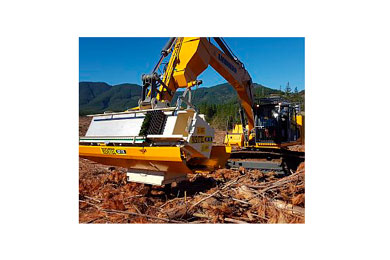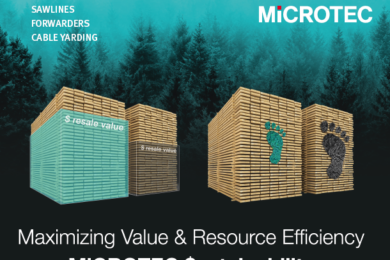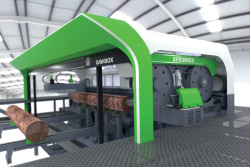Mechanised tree planting technologies profiled – For the first time since the annual ForestTECH series started back in 2007, this year’s event will involve two separate themes over the two days. ForestTECH 2020 runs in Rotorua on 18-19 November 2020. This year, it’s being run live and as a virtual on-line event for Australian and international delegates.
The usual focus for the end of year series is on remote sensing, data capture, GIS and mapping and forest inventory technologies. One of the two days this year will again be providing insights into new data collection technologies that have been developed and are being used operationally out in the forest. Advances that have been made on processing and better interpreting the big data streams now routinely being collected out in the field is also a key component this year.
ForestTECH 2020 has also set aside a full day to cover new technologies around forest establishment, mechanised planting and silviculture. A significant number of presentations given at last year’s ForestTECH series covered research and trials that had been undertaken on planting with drones, seedling deliveries onto planting site by drones and survival counts of tree seedlings using satellites, hyperspectral and multispectral imagery and deep learning. As these new remote sensing technologies are being rolled out, there is an obvious cross over between forest data collection and cutting-edge research and trials around tree crop management.
Recently, there has also been a resurgence of interest being shown by forestry companies in Australasia on mechanised or automated operations for planting and silviculture. The economics are starting to stack up and the technology can address the growing issue of labour shortages that are being faced over the planting season. Mechanised or machine planting is already successfully being used across Scandinavia and in South America. Operational trials have been undertaken in the central North Island of New Zealand last planting season with more extensive plantings using the mechanical planting systems planned for this year.
Aside from addressing the shortage of planters this year because of COVID-19 restrictions, some of the advantages being seen of mechanised planting using planting heads mounted on an excavator are much better soil cultivation (ripping and mounding) for the young trees and greater consistency in the quality of the tree planting. Fertiliser granules can also be integrated into the planting process, along with herbicides or insecticides if required.
In drier climates or at the end of the planting season, tree planting can also be extended by the application of water (or slow release irrigation) at the time of planting. This feature, particularly with eucalyptus plantings in countries like Chile, Brazil, South Africa, China and Indonesia, has been used successfully and is being trialled this season in northern NSW.
Each of the main mechanised planting head manufacturers; Bracke, Sweden, Risutec, Finland and the M-Planter, Finland (represented in this part of the world now by a CNI land preparation contractor) will be presenting as part of ForestTECH 2020. Early trial results and lessons from trials by some of the larger companies in both New Zealand and Australia will also be detailed to ForestTECH 2020 delegates as part of the November event.
Full details of the programme for both days can now be viewed on the event website and here.
Photo: Risutec







